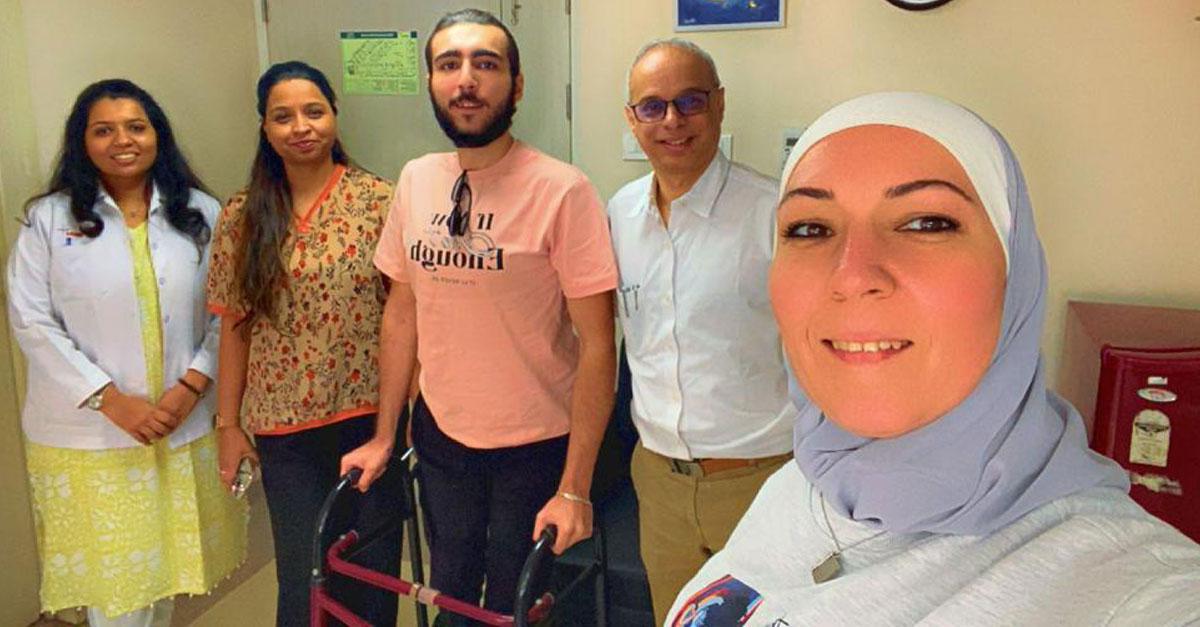The WFH is active in Syria through projects focused on patient education, outreach and awareness, and advocacy. These projects—in concert with the WFH Humanitarian Aid Program—have created a strong support network that made it possible for Rida Hadle to receive life-changing surgery.
Born with severe hemophilia A, Hadle struggled with joint damage from an early age. At nine, a traumatic eye injury and subsequent factor treatment triggered inhibitors, complicating his already-challenging bleeding disorder. Over time, further deterioration in his hip joint and other issues left him largely confined to a wheelchair. Rida’s prospects appeared bleak until he started receiving support from the WFH Humanitarian Aid Program.
With support from the Hemophilia Federation of India and funds raised by his family, Rida travelled to Sahyadri Hospital in Pune, India. There, hematologist Shashi Apte, MD, working with his comprehensive care team, performed a complex custom hip replacement, charging the minimum for the life-changing procedure. This procedure required recombinant Factor VIIa, which was donated by HemaBiologics and LFB though the WFH Humanitarian Aid Program.
Rida spent over three months in Pune, undergoing intensive physiotherapy to relearn basic movements. In photos and video captured after surgery, he can be seen walking again—initially with two sticks, then progressing to one.
Returning to Damascus was cause for celebration. Six months later, Rida could manage most everyday tasks like shopping independently, a milestone unthinkable just a year before.
Today, Rida expresses heartfelt gratitude to all involved in his care: the WFH, HemaBiologics, LFB, Shashi Apte and his team, and countless supporters who worked to help him enjoy a better quality of life. Their coordinated generosity gave him not just mobility, but hope.
Over 5 million IUs of factor were donated to Syria through the WFH Humanitarian Aid Program in 2024, along with 53 thousand mgs of non-factor replacement therapy. Since 2015, nearly 44 million IUs of factor, and over 185 thousand mgs of non-factor replacement therapy have been donated. To find out more about the WFH Humanitarian Program, please click here.
About the WFH Humanitarian Aid Program
The WFH Humanitarian Aid Program improves the lack of access to care and treatment by providing much-needed support for people with inherited bleeding disorders in developing countries. By providing patients with a more predictable and sustainable flow of humanitarian aid donations, the WFH Humanitarian Aid Program makes it possible for patients to receive consistent and reliable access to treatment and care. None of this would be possible without the generous support of Sanofi and Sobi, our Founding Visionary Contributors; Bayer, CSL Behring and Roche, our Visionary Contributors; Grifols, our Leadership Contributor; and Takeda, our Contributor. To learn more about the WFH Humanitarian Aid Program, visit www.treatmentforall.org.













